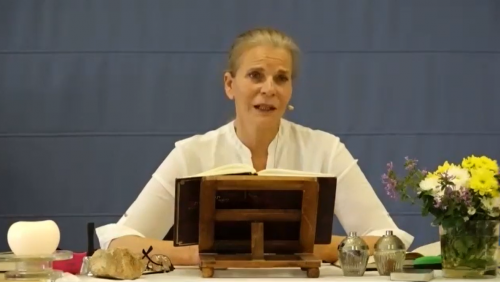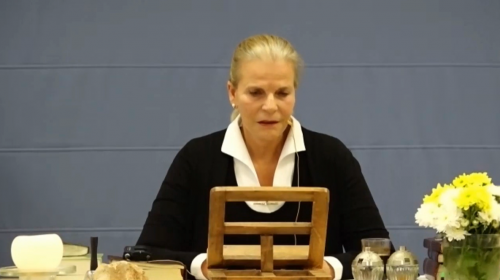Shakti Leadership, Nilima Bhat at Mishkan Hakavana
We recently had the pleasure of hosting Shakti Leader, Nilma Bhat, at Mishkan Hakavana.
The discussion revolved around Kabbalah, similarities – common ground – and difference with the Shakti learning. To do so, the group began a Hevruta gathering to discuss the article “Divinity (Schechina) in Exile” by Baal Hasulam.
The Rabbah, Saphir Noyman Eyal, began by explaining the root of Shakti being Abraham, who sent his knowledge. Shakti, the expression of everything that is possible, is like Schechina – the feminine part of it.
The discussion
Nilma Bhat asked to learn more about the section of the article stating: “There are 2 powers that alone can effect in their conjunction the great and difficult thing – which is the end of our endeavor.”
The Rabbah began by explaining that the presence of bestowal is the nature of what we call “Keter” – the Crown. It is the will of the Creator to bestow good to its creatures. First, the extension of that will needs a vessel to recieve it. That vessel must go through processes of growth recognition and develop an attitude. The way it was manifested is the will to receive …which slowly translated into receiving for oneself. The entire Creation is learning place to allow createes to reform and receive not only for oneself – but in order to bestow.
We can not anule the will to recieve, since the active will to receive is bestow.
All of our work in Kabbalah is change our nature to receive in order to bestow. If we only receive for our-self we cut ourselves, so that we don’t cut ourself. Therefore, we need an adaptor to reform us.so that we still recieve, but in order to bestow.
To whom can we bestow – not to Him. But rather to other creatures. The moment we are truely generous to others, really generous, it becomes a perpetual bestow. We become a transmission point of the will of the Creator.
In our generation, as the AR”I explained, is to allow the Creator to reveal Himself. It is therefore a demand of humans to become a receptor to receive on the feminine part and then bestow from the male part.
Click here to view the entire conversation







